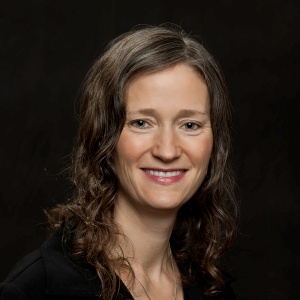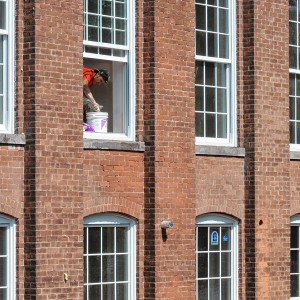Editorial: Trump news keeps getting weirder
| Published: 03-24-2017 12:53 PM |
Two-thirds of the way through President Donald Trump’s first 100 days in office, the news just keeps getting weirder and — for those who cherish the rule of law and reason — more disturbing.
FBI Director James B. Comey told congressional representatives this week there is “no information” that then-President Barack Obama illegally spied on Trump during the bitter 2016 election campaign, as the current president has repeatedly alleged.
Comey did, however, confirm that his agency is investigating whether the Trump campaign colluded with the Kremlin to meddle in the election. That possibility has implications not just for the 2016 race but for democracy itself.
“They’ll be back in 2020. They may be back in 2018,” Comey said of the Russians. “One of the lessons they may draw from this is that they were successful, introducing chaos and discord” in the American electoral system.
Trump has denied such corruption, but evidence continues to mount. The Associated Press reports that former Trump campaign chairman Paul Manafort secretly worked for a Russian billionaire a decade ago to promote the interests of Russian President Vladimir Putin even as relations worsened with the America led by Republican President George W. Bush.
In exchange for his $10 million a year paycheck, the AP reported, Manafort proposed a strategy to influence politics, business dealings and news coverage inside the United States, Europe and former Soviet Republics. Now why does that sound familiar?
Trump, predictably, responds to all this with an itchy Twitter finger. “The Democrats made up and pushed the Russian story as an excuse for running a terrible campaign,” he wrote. “Big advantage in Electoral College & lost.”
Huge disagreement! Time will tell what facts emerge, but the prosecutors’ mission must not be undermined by even a suggestion of interference by the White House or either party. We hope that Massachusetts lawmakers will join in the push to appoint an independent prosecutor whose findings will emerge not through tweets but via a nonpartisan pursuit of the truth.
Article continues after...
Yesterday's Most Read Articles
 South Hadley’s Lauren Marjanski signs National Letter of Intent to play soccer at Siena College
South Hadley’s Lauren Marjanski signs National Letter of Intent to play soccer at Siena College
 LightHouse Holyoke to buy Gateway City Arts, expand offerings and enrollment at alternative school
LightHouse Holyoke to buy Gateway City Arts, expand offerings and enrollment at alternative school
 Treehouse, Big Brothers Big Sisters turn race schedule snafu into positive
Treehouse, Big Brothers Big Sisters turn race schedule snafu into positive
 South Hadley man fatally shot in attempted robbery
South Hadley man fatally shot in attempted robbery
 Granby man admits guilt, gets 2½ years in vehicular homicide
Granby man admits guilt, gets 2½ years in vehicular homicide
 Area briefs: Transhealth to celebrate 3 year; Holyoke to plant tree at museum; Documentary film about reparations focus of Unitarian talk
Area briefs: Transhealth to celebrate 3 year; Holyoke to plant tree at museum; Documentary film about reparations focus of Unitarian talk
***
While the Trump-Russia probe has dominated headlines this week, other momentous deliberations are unfolding.
The U.S. House is expected to vote Thursday on a Trump-backed plan to replace the Affordable Care Act with a system that would cost 14 million Americans health coverage next year. Congressional Republicans are rebelling against a Trump budget plan that would boost military spending while cutting funds in areas such as environmental protection, public health and the kind of foreign aid that prevents conflicts before they begin.
There’s also the hugely important work of filling federal judicial vacancies, appointments that could shape the law for years, if not decades, to come.
The Senate Judiciary Committee is debating whether to confirm Neil Gorsuch, Trump’s nominee for the U.S. Supreme Court. As we’ve written before, Gorsuch is a jurist with a reputation for integrity and independence. We hope he will have the courage to publicly repudiate Trump’s attacks on judicial independence before he wins confirmation, providing a sign that he will approach his duty without fear or favor.
Meanwhile, a quieter but no less important question looms: Who will fill the largest number of federal judicial vacancies left to any president in a half-century? Right now, Trump has the power to appoint 124 federal judges, a backlog built by Republicans who thwarted Obama’s appointments — and a number that could total 200 or more with vacancies expected in coming years.
Most legal challenges do not make it to the Supreme Court. They are instead decided by lower courts, with far-reaching implications (just think of the recent rulings rejecting Trump’s ban on travel and immigration). A network of political and religious conservatives is currently lining up potential judges who could turn back the clock on rulings on everything from reproductive rights to immigration to the separation between church and state.
Americans, and their elected representatives, should pay attention. You know that Trump, and those who influence him, will.

 Columnist Carrie N. Baker: A moral justification for civil disobedience to abortion bans
Columnist Carrie N. Baker: A moral justification for civil disobedience to abortion bans Guest columnists Ellen Attaliades and Lynn Ireland: Housing crisis is fueling the human services crisis
Guest columnists Ellen Attaliades and Lynn Ireland: Housing crisis is fueling the human services crisis Lora Sandhusen: Discourage ultra-wealthy consumption habits with carbon tax
Lora Sandhusen: Discourage ultra-wealthy consumption habits with carbon tax Guest columnist Jena Schwartz: Things I have not said
Guest columnist Jena Schwartz: Things I have not said
